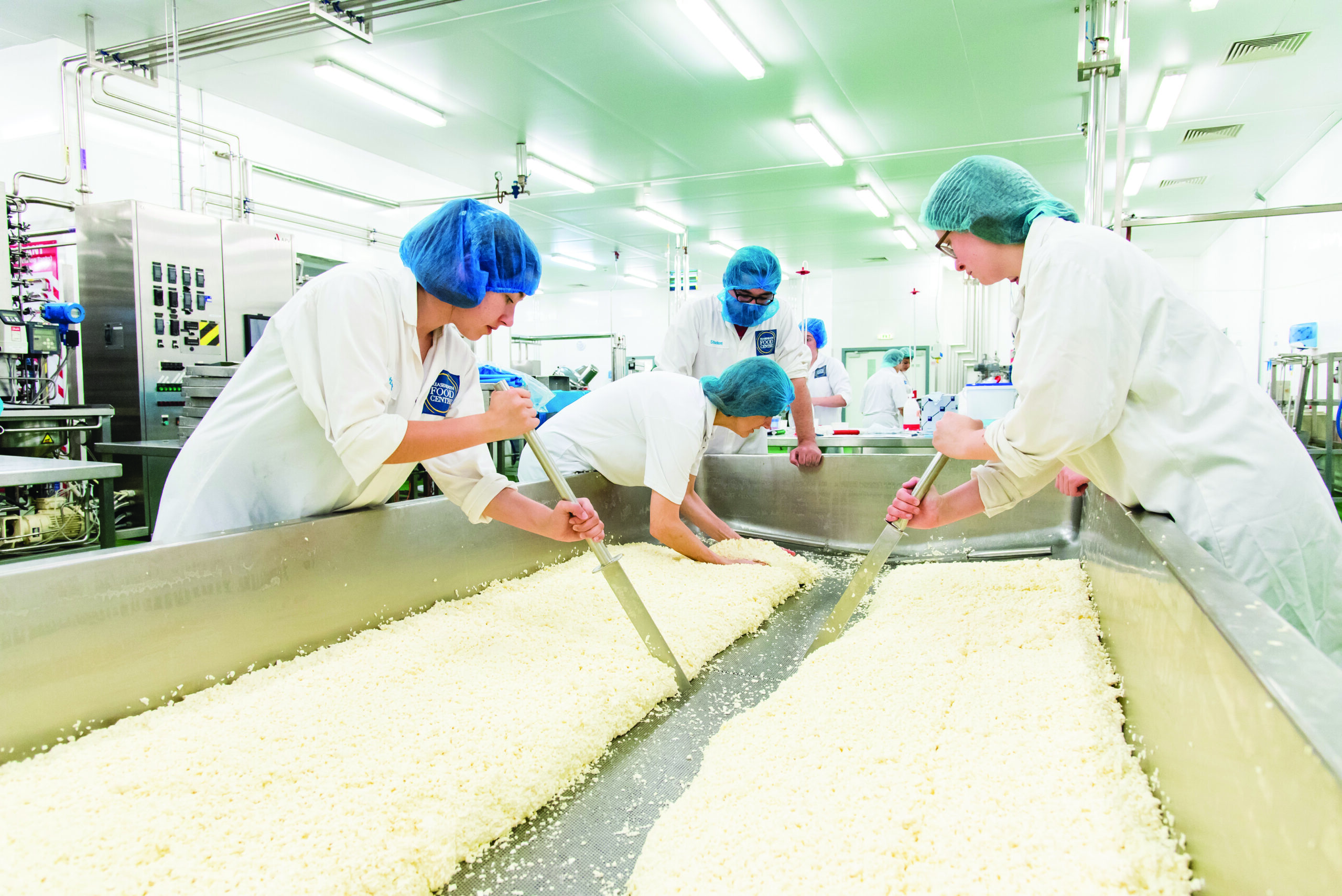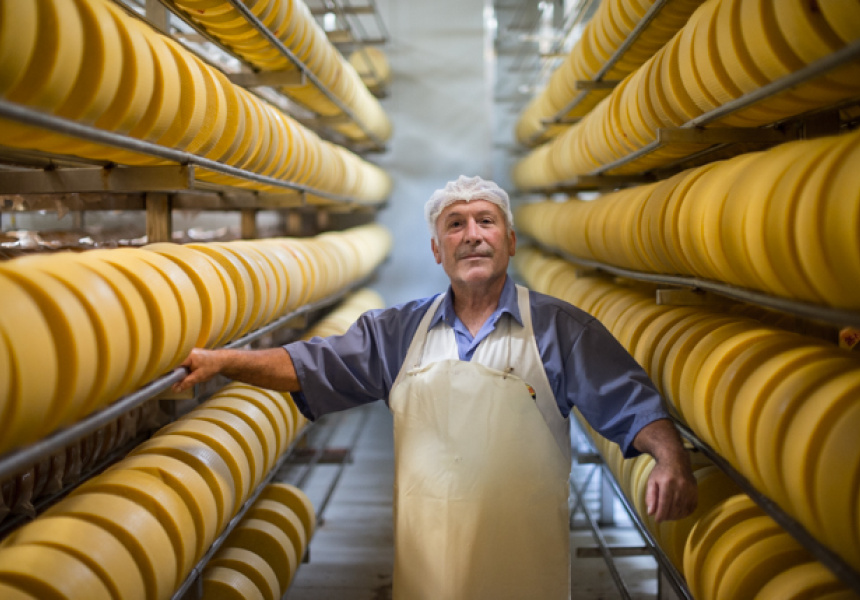Order Cheese for Sale Online Melbourne's Trusted Cheese Makers
Order Cheese for Sale Online Melbourne's Trusted Cheese Makers
Blog Article
Exploring the Art of Cheese Manufacturing: Methods, Processes, and Developments in the Dairy Products Market
The exploration of cheese manufacturing encompasses a diverse selection of methods and processes that reflect both historical practices and modern technologies within the dairy sector. By analyzing the elaborate art of fermentation, aging, and modern production methods, one gains insight into just how artisans and large-scale manufacturers alike adapt to evolving customer preferences and sustainability difficulties. As we think about the implications of these growths, it ends up being important to examine just how they will shape the future landscape of cheese and its role in our diet regimens and culinary methods.
Background of Cheese Making
Mapping its origins to ancient people, the history of cheese making reveals a rich tapestry of social and technological evolution. Evidence suggests that cheese manufacturing dates back over 7,000 years, with historical findings from regions such as Mesopotamia and the Indus Valley showcasing very early dairy practices. These cultures used milk from tamed pets, and with natural procedures of fermentation and coagulation, they created simple kinds of cheese.
As civilizations proceeded, the art of cheese making came to be extra refined. The ancient Egyptians and Greeks documented their methods, which consisted of a variety of milk resources and varied techniques for aging and flavor cheese. The Romans further advanced cheese production, exporting their expertise throughout Europe, which brought about local adaptations and special varieties.
The Middle Ages experienced the establishment of monasteries as facilities of cheese manufacturing, where monks developed distinctive dishes that showed neighborhood tastes and available resources. Throughout the centuries, cheese making has progressed, affected by elements such as location, environment, and cultural techniques. This abundant background not only illustrates the ingenuity of very early cultures yet also lays the foundation for the diverse cheese ranges delighted in today throughout the world.
Typical Cheese Manufacturing Techniques
Conventional cheese production strategies include a variety of time-honored methods that have been passed down through generations. These methods, often region-specific, reflect the distinct cultural heritage connected with cheese-making. The process commonly begins with sourcing high-grade milk, which can differ in kind relying on the preferred cheese.
Coagulation is achieved via the enhancement of rennet and occasionally an acid, causing the formation of curds. The curds are then reduced and carefully mixed, enabling whey to separate. This initial curdling stage is crucial, as it affects the appearance and dampness web content of the final product.

Fermentation and Aging Procedures
Fermentation and aging procedures are navigate to these guys essential to the advancement of cheese, happening after the first coagulation and pressing stages. During fermentation, particular bacterial societies are presented to the curds, promoting the conversion of lactose right into lactic acid. This acidity not only assists in curd conservation however additionally adds to the flavor account and texture of the last item.
As the cheese ages, biochemical reactions continue to take place, affecting its taste, aroma, and texture. Different cheeses need varying aging durations, which can vary from a couple of weeks to numerous years, leading to distinct features.
In addition, the visibility of molds or yeasts on celebrity surface area can even more enhance taste intricacy. For example, blue cheeses rely upon details mold and mildew cultures to produce their signature preference profiles. Generally, both fermentation and aging are crucial in defining the individuality of cheeses, enabling craftsmens to develop a diverse array of products that provide to a large range of tastes.
Modern Technologies in Dairy Manufacturing
Advancements in dairy products production have actually transformed the cheese-making procedure, boosting efficiency and product quality. Technological developments, such as automated milking systems and accuracy fermentation methods, have streamlined operations and enhanced consistency in raw milk top quality. These systems minimize labor expenses and boost pet well-being by permitting even more comfy and effective bleeding methods.
Additionally, the incorporation of data analytics and IoT (Net of Things) gadgets has allowed dairy manufacturers to monitor various criteria, such as temperature and humidity, in real-time. cheese shop melbourne. This capacity guarantees ideal conditions throughout the cheese-making process, resulting in a Full Report better end product
Furthermore, technologies in pasteurization methods, consisting of high-temperature short-time (HTST) pasteurization, have click to read more not just increased food safety but also protected the fragile tastes and nutrients integral in milk.
Lasting methods are also acquiring traction, with developments in waste management and renewable resource usage. Lots of manufacturers are now using biogas from dairy waste, promoting environmental stewardship while at the same time decreasing operational costs.
These modern innovations jointly add to a more efficient, sustainable, and top notch cheese production process, establishing brand-new standards in the milk market.
Future Trends in Cheese Market
As the cheese market remains to advance, arising trends are improving production, consumption, and marketing strategies. One substantial trend is the growing demand for artisanal and specialty cheeses, driven by customers seeking unique flavors and high-grade ingredients. This change is encouraging manufacturers to adopt traditional approaches while integrating modern technology for boosted quality control.
Sustainability stays at the leading edge of consumer choices, prompting suppliers to explore green techniques, such as reducing water usage, enhancing energy usage, and using naturally degradable packaging materials. Furthermore, advancements in plant-based cheese options are expanding market opportunities, dealing with the boosting variety of vegan and lactose-intolerant customers.
Moreover, digital marketing and e-commerce are reinventing just how cheese is marketed and offered, allowing manufacturers to connect straight with customers and customize their offerings to particular demographics. Subscription solutions and online platforms are ending up being popular channels for cheese distribution, boosting accessibility and ease.
Lastly, health-conscious trends are influencing cheese formulas, with manufacturers creating lower-fat, lower-sodium, and nutrient-enriched choices to fulfill consumer demands. As these patterns remain to unravel, celebrity sector is most likely to witness a vibrant change that straightens with contemporary customer worths and preferences.

Conclusion
The expedition of cheese manufacturing discloses a complex interplay of classic strategies and modern technologies. Traditional techniques, rooted in historical techniques, remain to influence modern manufacturing while adapting to evolving consumer choices. Fermentation and aging processes remain important to taste growth, while developments in innovation boost efficiency and sustainability. As the milk market accepts health-conscious patterns and environment-friendly practices, the future of cheese manufacturing promises continued development and advancement, ensuring its long-lasting relevance in cooking society.
Report this page